Nikolay Berdyaev: His Teaching on the Human Person
Berdyaev rarely liked his own books, although many of them had already been translated into a dozen or more languages even during his lifetime. He suffered keenly the tragic rift between “the flame out of which creative tension is born, intuition, and image”, on the one hand, and the results of creativity, on the other. “Burning creativity and creative “take-off” are always aimed at bringing about new life and being, but the results are the chilled products of culture, cultural values, books, pictures, institutions, and good deeds,” wrote Berdyaev.
“The West was astounded by his thought on creativity,” says Tatyana Viktorova, a Professor at the University of Strasbourg, and the Editor-in-Chief of the journal, Vestnik Russkogo Khristianskogo Dvizhenija (Journal of the Russian Christian Movement). “In Europe, creativity was often thought of as an aesthetic act, associated with art and culture. But according to Berdyaev – and in this he is similar to Alexander Skryabin – creativity actually transforms the world. Probably more than anything, Berdyaev and Skryabin are united in their eschatological understanding of culture.”
“In speaking of his favourite composer, Berdyaev noted that Skryabin was not searching for a new art or a new music, but for a new heaven and a new earth,” says SFI Professor Alexander Kopirovsky.
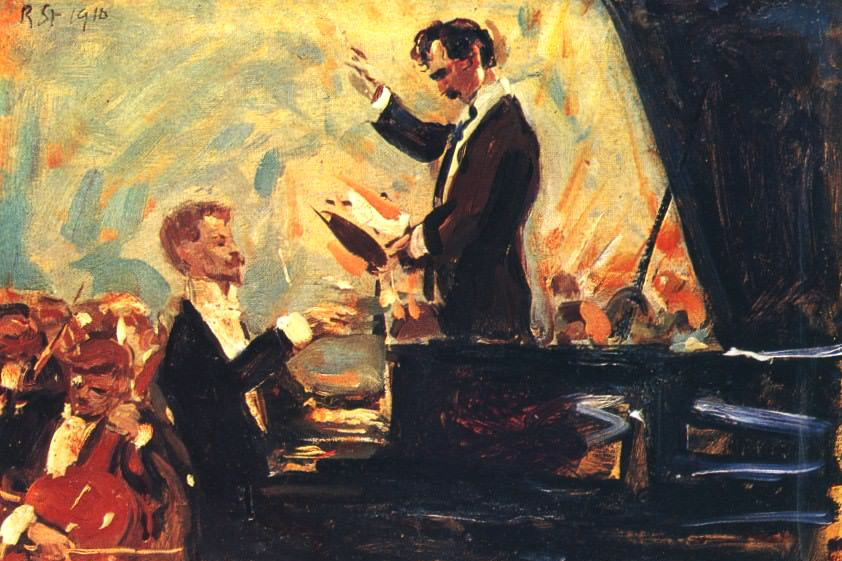
At fourteen and having read Kant, Berdyaev felt at home with European philosophical thought, yet wasn’t himself a product of this thought. He enters into free dialogue with his contemporaries and their predecessors, without sharing in their experience of objectified knowledge of God, in terms of which, as he writes, “at this point there is no God, as such, but there are still various ideas about God”, and “although good and evil are no more existent and substantive, various ideas about good and evil continue to prevail.”
“He would be irritated, for instance, when it was announced that “loneliness” would be the topic of discussion, and then only discussion about Rilke’s notion of loneliness ensued,” says Alexey Boldyrev, a Senior Lecturer in the History of Russian Philosophy at MGU. “Western European culture is so rich and productive, and to such an extent subsumed by its own traditions, that no one dares to speak for himself, lest he should inadvertently “reinvent the wheel”, thereby stepping outside the framework of academic decency. Berdyaev, on the other hand, cultivated free thinking about God and meaning within life.”
The “Sobornost” Gene
Even as Nikolay Berdyaev doesn’t seem to fit easily into any single philosophical or theological current, it is clear that he has influenced the spiritual and intellectual landscape of Europe and, even more importantly, has become the focal point for the formation of new communities which have both religious-philosophical and social significance. As early as 1922, he founded a spiritual academy in Berlin, which carried on in the tradition of the Moscow-based Free Academy of Spiritual Culture (Volnaya Akademia Dukhovnoj Kultury), the work of which was one of the reasons that he was exiled from Russia.
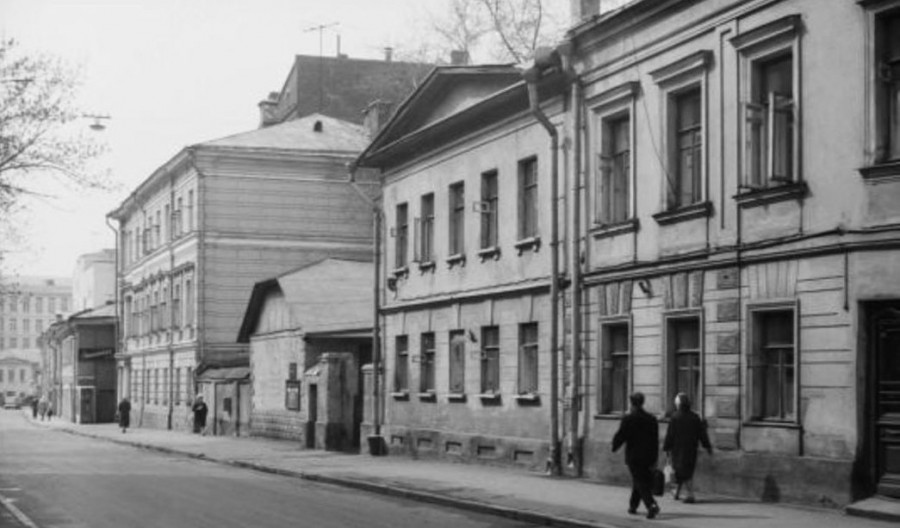
“Although in his thought about community he always remained alone, it’s not possible to say that he didn’t create around himself the sort of brotherhood about which he dreamed,” says Vice Rector of the Philosophy Department of MGU, Aleksey Kozyrev. “And by this I mean the Free Academy of Spiritual Culture, the Religious-Philosophical Academy in Paris, and the journal “Putj”, which became a real centre for religious fellowship.”
“Just look at this photo of the Russian philosophical exiles – look at what fine jackets they are wearing!” notes Kozyrev. “They were hardly beggars over there – and they found plenty of work for themselves. It’s hard for us to imagine, but when they got off the “philosopher’s ship” nobody needed them. So in order to build a life for them, Berdyaev finds grants, solicits orders for books, etc., from YMCA-Press.”
In the emigration he takes an active role in the work of the Russian Christian Students Movement, inspires Mother Maria Skobtsova to create “Pravoslavnoye Delo”, a charitable educational society for the aid of Russian emigres, which also provided aid to Jews and members of the French Resistance during the time of fascist occupation.
In 1925, Paul Anderson suggests that Berdyaev head the Russian Department of YMCA-Press, and this becomes the brightest period in the life of that publishing house. In the same year, Berdyaev becomes Editor-in-Chief of “Putj”, on the pages of which he again brings together many of the former participants of the evening discussions that had taken place at Vyacheslav Ivanov’s “Tower” apartment (a Silver Age cultural phenomenon). Jacque Maritain, Paul Tillich, Henri Massis and other western thinkers also join the discussion.
“This dialogue forms the intellectual and spiritual landscape of France,” says Tatyana Viktorova. “Berdyaev, like the “Russian European” described by Dostoyevsky is “a Frenchman in France and a German in Germany, and for all that, only all the more Russian.”
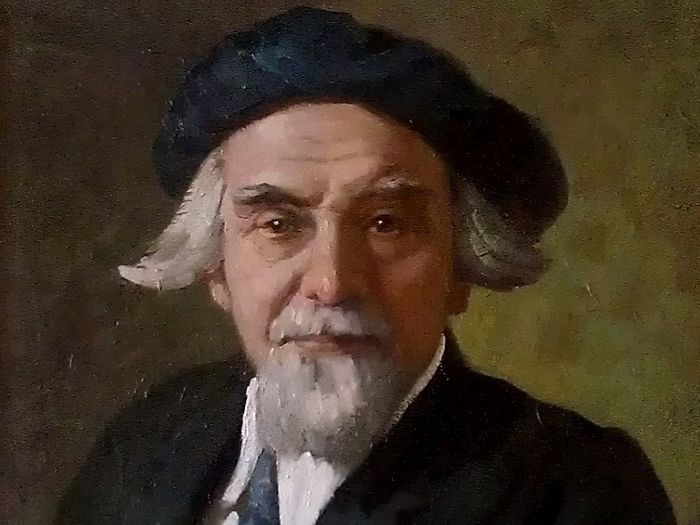
An Apologist for the Church
One of the leading western Orthodox theologians of the second half of the 20th century, Oliver Clement, named Berdyaev as the main inspiration for his creative contribution. It was under the influence of Berdyaev that he was received into the Orthodox Church. “Together with Berdyaev,” says Tatyana Viktorova, “Clement discovers and reveals the depth of the contradiction within human nature, which while oriented toward freedom, simultaneously inhabits a place of slavery, ever maintaining that inextinguishable element which overthrows all western theories of determinism – the divine image of the human being, which means that under any condition he remains a co-creator of the universe.”
“Berdyaev, together with Sergei Bulgakov, was an apologist for Christianity of profound stature, and should be recognized by the church as one of the great defenders and preachers of the orthodox faith,” believes Fr. Georgy Kochetkov, Rector of SFI. “Making no allowance for any confusion between the Church of Christ and the Church of the Grand Inquisitor, the antichrist, he suffered keenly an awareness of the difference between them, and often also the difference between the mystical church and the institutional church. But though he did not have a high opinion of the institution, he never broke league with the orthodox church.”
Berdayev’s refined vision discerned Divine Humanity in the Church, and at the centre of church life, the principles of personhood and sobornost. He spoke of of the incompleteness of the personal principle within the church and how it has been shunted aside by the symbolic-hierarchical principle, and about an unnecessary shift in focus away from prophecy and toward hieratic priesthood, in which situation it is not the person himself who is venerated, but “the bearer of power, itself an impersonal hierarchal principle.”
“The bishop, the priest, the monarch and the policeman, the father and head of the family, the owner of the business and the boss of an institution – all these things are hierarchical positions, the qualities of which are given automatically, along with the role, rather than deriving from the person occupying the role,” writes Berdyaev, juxtaposing the inhuman hierarchicalism of rank and position with a hierarchy of human gifts. “The holy person and the genius, the hero and the man of great stature, the prophet and the apostle, the man of great talent and/or mind, the inventor and the master оf his trade – all these are human hierarchical ranks, and submission to those who bear these ranks happens in an entirely different way, than does submission in the case of inhuman and impersonal hierarchy.”
Impersonal hierarchy is a sign of an insurmountable rift between God and man, their incommensurability and lack of connectedness, replacing real fellowship with symbolic fellowship. Berdyaev is unwilling to agree to this rift, or to man’s exile from true fellowship with God.
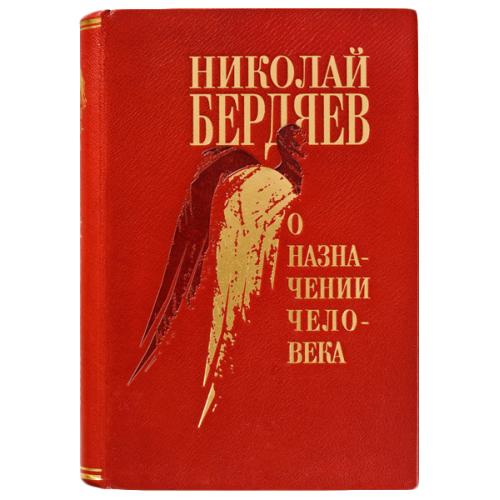
The Mystery of the Human Person
One of Berdyaev’s main contributions was his intuition vis-a-vis the absolutely unique place of man in God’s plan, and the mystery of the human person, which remains hidden, so long as we continue to look at man as one of the components making up the natural world, or from a societal perspective.
In the very structure of the world, in the “necessity” of its parts for each other, in the peripheral place of man in nature, and his captivity to society, Berdyaev finds that we aren’t exactly living in the world that God created, and that we ourselves, aren’t exactly who He created. “A great sign of man’s humiliation is visible in that he receives light from the sun and that his life revolves around the sun. Man should have been the light of the world; the “Logos-Sun” should shine in man himself. But man is fallen and the sun has gone out of him.”
For Berdyaev, the fall of man and his humiliation and captivity to evil and the sinful state is a tragedy not only for man, but also for God. God is searching “for his other self, longs for him and waits for him to answer the call to divine life, divine wholeness, co-participation in the creativity of God which triumphs over non-being.” It is through man that the world is destroyed, yet at the same time the world is only recreated through man.
Berdyaev writes that man “can increase God’s strength”, but his creativity is related to freedom and necessarily involves risk. Man takes a risk when he takes a decision in favour of fellowship, love, faith, or the perception of truth. There is inherent risk in every creative act that overcomes the coldness and burden of this world, that frees the world from slavery and brings us a bit closer to “a new heaven and a new earth”. “Freedom is a dangerous enterprise,” says Alexander Kopirovsky. “But without that risk, man has no chance of finding the Living God.”
Berdyaev believes that it isn’t only man who is taking a risk in this enterprise, but that God is taking a risk, too. It is God who first calls out to non-being, and all of the created cosmos might be considered as a struggle with the forces of non-being. Berdyaev calls into radical doubt the idea of an “all powerful” Creator, showing that this is inconsistent with the Christian revelation of a crucified God. “It’s strange,” he writes, “that people should deny that there is tragedy in the religion of the cross.”
“The triumphal entry of freedom is impossible. It makes sense that Berdyaev feels close to the late work of Igor Stravinsky, which is tragic and heavy,” says Alexander Kopirovsky. “In this music he hears ‘the fate of freedom in our world.’”
God, revealing himself in Christ, calls man to search in His Church not for a calm life and salvation from hardship and misery, but to risk taking part in the plan of a Creator, who has grounded His work in freedom.
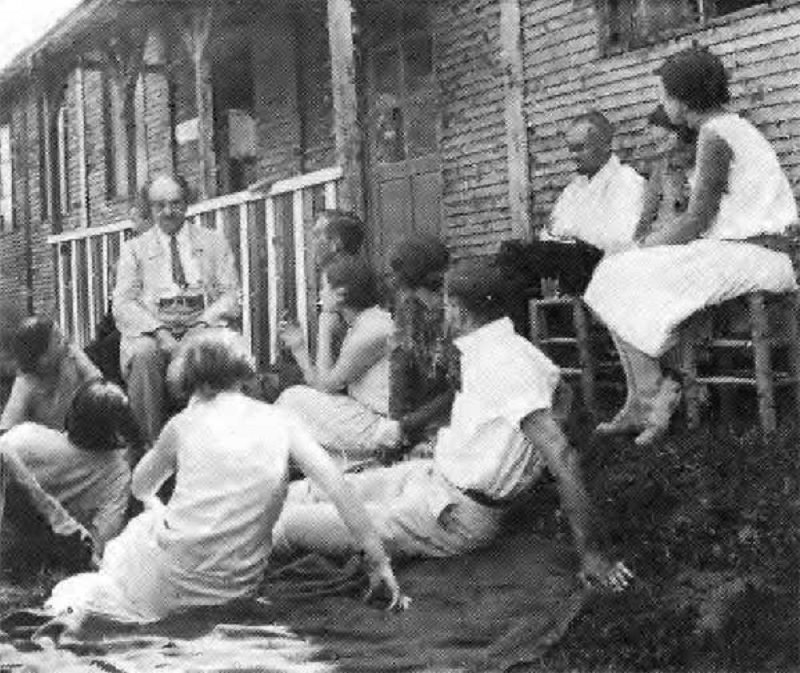
Returning to Russia
As he lived out his years in exile, Berdyaev waited for an opportunity to return to his homeland. During Berdyaev’s lifetime, the prophetic words of holy elder Aleksey Mechyov, who wished that “Berdayev’s voice be heard in Europe”, came to pass. Not even having received a diploma from an institute of higher learning, he became Europe’s most-read Russian philosopher, received an honorary DPhil at the University of Cambridge, and was nominated for the Noble Prize 7 times. The pages of his biography, however, are shot-through with a feeling of disappointment and being misunderstood and, at the end of his life, Berdyaev himself notes that as of yet, his voice has not be heard in Russia.
But the preparation for Berdyaev’s “return” was underway, believes Alexey Boldyrev, and by the 1970’s his name was known in the Soviet Union. Boldyrev continues, “While I was studying at the faculty of philosophy, for 25 rubles I bought a Xerox copy of Berdyaev’s “Meaning of Creativity” from the now well-known and irreplaceable Party Organizer of our class, Viktor Aksjuchits,” he says. I even wrote a paper on Berdyaev, which, of course, also contained all the proper Marxist conclusions. But if someone decides to study Berdyaev, he can barely help falling in love with him. Activity on the part of the intelligentsia had an effect on the authorities and on the cultural milieu on a molecular level, preparing the way for Berdyaev’s return.”
“At the very end of the Soviet Era, the philosophy Genrikh Batischev, made the same transition from Marxism to Orthodoxy that Berdyaev had travelled in his return,” says Alexey Kozyrev. “This means that this path isn’t just a trajectory which is typical for its time, but that through Berdyaev, this trajectory is open to everyone.”
“But things aren’t so simple,” he adds. “When Fr. Georgy Kochetkov and I recorded our Interview on Berdyaev for Radio “Vera”, it became the only programme from the “Philosophical Nights” series to be erased from the site. And a year ago my interview on Berdyaev was published in “Foma” Magazine, but before it came out I had to jump through a series of hoops, including interviews with different editors who were bothered by the fact that Berdyaev was critical of the church, defended the persecuted synod of ‘heretics’, etc.”
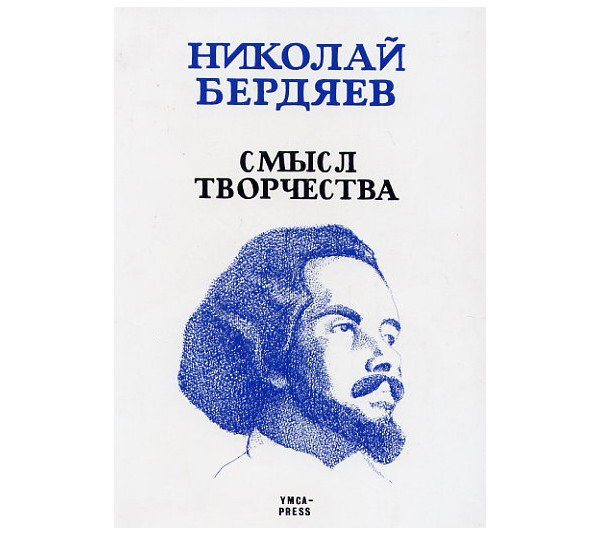
Berdyaev has always been and remains an uncomfortable figure. His thought doesn’t fit easily into any single ongoing discourse, and if it were necessary to give a name to his type of argumentation, the word “prophetic” might be the best fit. In a century dominated by the desecration of man, when the unbridled forces of the slave instinct and cruelty were unleashed and creative strength found wanting, Berdyaev spotted three “new and eternal” spiritual vectors in man’s moral life – man’s urges for freedom, compassion and creativity; each of these vectors, he said, was mounting in heretofore unheard of strength. Berdyaev’s voice cultivates and calls forth these principles in man, and is directed to the depth of the human soul, desiring to free man from an epidemic of hypocrisy and lack of faith, slavery and fear, chivalrously exposing the slanders that had been leveled at God, man and the Church. When Berdyaev agreed with criticism of the church, he never spoke of her from without, but rather with the authority befitting to a prophet. And, just perhaps, Berdyaev takes the revelation of man’s likeness to God, God’s humanity, and of the Church as the cradle and beginning of the Kingdom of God on earth, more seriously than others who had gone before him.
The “Evening of Remembrance in honour of Nikolay Berdyaev, ‘Son of Freedom,’” was organized by St. Philaret’s Orthodox Christian Institute, and took place at the Alexander Solzhenitsyn House of Russia Abroad, on 28 March, 2019. Participants in the evening’s discussions included: Tatyana Viktorova (Professor at Strasbourg University, France, and Editor-in-Chief of the journal Vestnik Russkogo Khristianskogo Dvizhenija), Alexander Kopirovsky (Professor at St. Philaret’s Orthodox Christian Institute), Alexey Kozyrev (Deputy Rector of the Faculty of Philosophy at Moscow State University).